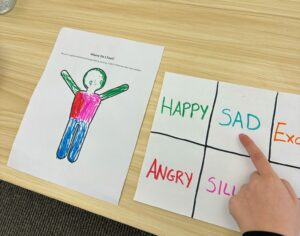5 Powerful Ways To Protect Your Mental Health In A Stressful World
Discover 5 effective, research-backed ways to protect your mental health in today’s fast-paced world. Simple strategies have a big impact.
In today’s fast-paced and digitally connected world, mental health is more important than ever. From social media pressure to workplace burnout, people are increasingly seeking ways to improve mental well-being, reduce anxiety, and build emotional resilience. In this post, we’ll explore 5 science-backed ways you can start protecting your mindset today.
Keywords: mindfulness tips, protect your mindset, improve mental well-being, emotional resilience
1. Practice Mindfulness Daily
Mindfulness helps train your brain to stay present and grounded. Studies show that mindfulness-based stress reduction (MBSR) programs can protect your mental health by reducing anxiety and depression. Simple practices like deep breathing, guided meditation, or even mindful eating can make a real difference.
🔗 Therapy Transformation: A Powerful Guide to Overcome Anxiety & Depression
2. Stay Active to Help Protect Your Mental Health
Physical movement directly supports mental health protection. Regular exercise increases endorphins, lowers cortisol, and improves mood stability. However, you don’t need to run marathons — even some time of walking each day is a powerful form of self-care.
📌 Pro tip: Aim for 30 minutes of moderate activity most days of the week.
3. Protect Your Mental Health by Building Strong Social Connections
Social isolation can be as harmful as smoking 15 cigarettes a day. Having someone to talk to whether it’s a friend, family member, or therapist plays a big role in how well you protect your mental health under stress.
✅ Action step: Schedule regular check-ins with someone you trust.
4. Prioritize Sleep
Poor sleep affects your mood, energy, and brain function. Additionally, create a calming bedtime routine, avoid screens before bed, and aim for 7–9 hours each night.
🧠 Did you know? Sleep deprivation can worsen symptoms of anxiety and depression.
5. Limit Social Media Use
Too much social media can lead to comparison, low self-esteem, and anxiety. Set app limits, unfollow negative accounts, and make time for real-world interactions.
Conclusion
Finally, taking small intentional steps everyday can lead to big improvements in your mental well-being. By integrating these 5 tips into your routine, you’re investing in a happier, more balanced version of yourself.
💬 Call to Action
Have you tried any of these mindfulness tips?
At RP Psychotherapy, we offer compassionate, professional care tailored to your needs — whether you’re navigating anxiety, trauma, relationship issues, or just need space to breathe.

Schedule a FREE 15-minute consultation today!

